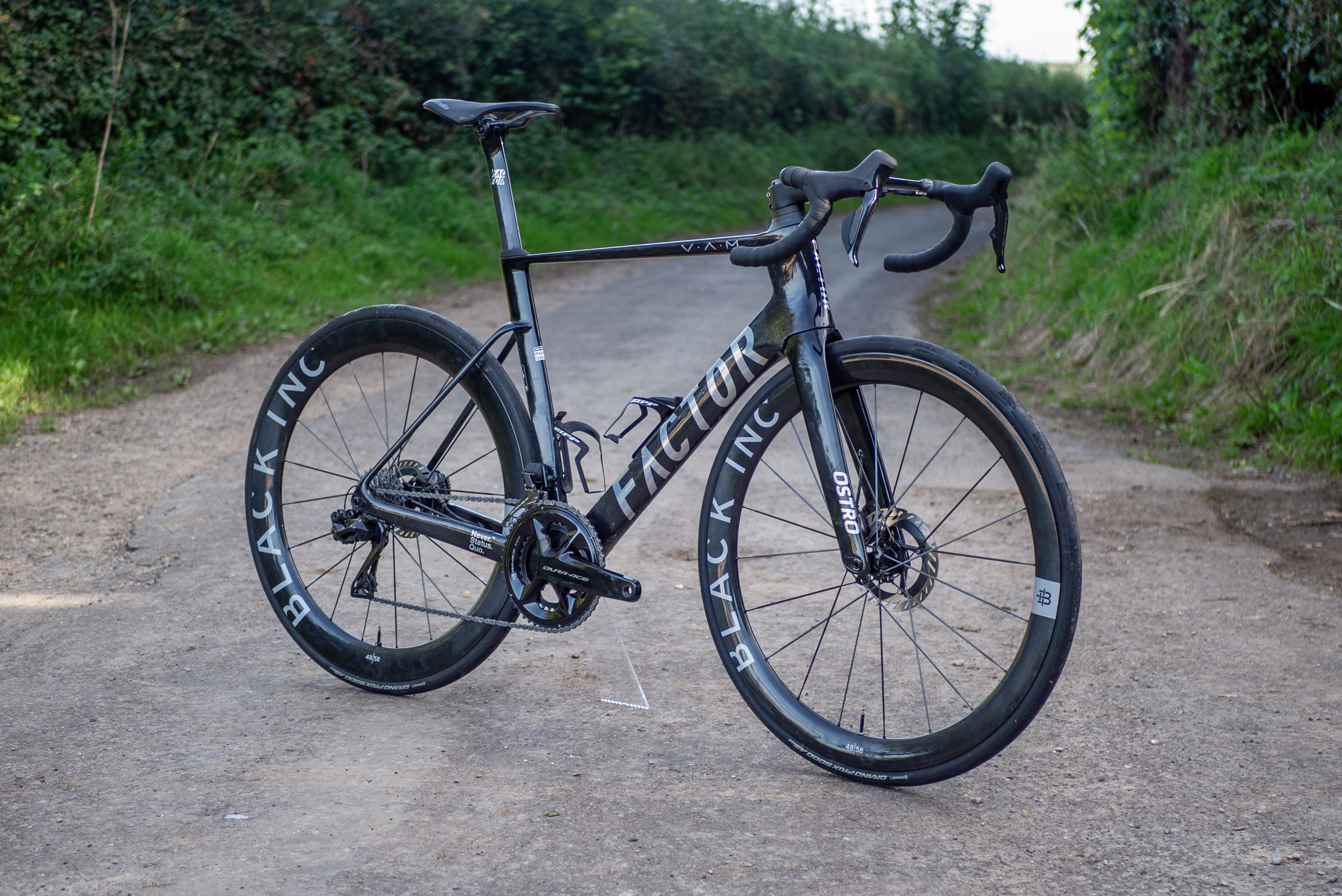
After a few accidental-on-purpose leaks and sightings at the 2024 season opener at the Tour Down Under in Australia, the Factor OSTRO VAM launched soon after in February. This was just months after the brand's O2 VAM launched as a lightweight bike with aero touches.
I'll be honest and say the launch confused me. Just months prior, the Factor O2 VAM had impressed me with its all-around performance and had seemingly bridged the gap between aero bikes and lightweight bikes. Much like Specialized's Tarmac which killed off the Venge and Trek's Madone which killed off the Emonda, I believed at the time that Factor's O2 was going to straddle the two lines, and alongside its position in our guide to the best lightweight bikes, I'd happily consider it among the best road bikes overall.
But here we are. Factor followed up its aero version of a lightweight bike with an all-new OSTRO VAM, which I can only really describe as a lightweight version of an aero bike.
*insert 'Corporate would like you to find the difference' meme here.
Are they not just the same thing? To cut a long story short, they are very similar, but crucially, I think in this case there's enough of a difference that I'm glad both bikes exist.
But is the new OSTRO VAM good enough to earn a spot on our guide to the best aero bikes, and perhaps join its stablemate among the best overall?
To find out, I've been using the OSTRO VAM since its launch for a wide range of road riding. I've raced it, I've done big endurance days on it, I've even commuted on it, and for anyone looking for a five-second review: it's been nothing short of exceptional.
As a customer, you can configure your own, meaning you get relatively free rein on certain specs and paint schemes. Priced at $11,199 for this spec, however, or $5,499.00 for a frameset, it doesn't come cheap.
That price also means it's got some stiff competition from the likes of the S-Works Tarmac SL8, the Trek Madone SLR, the Giant Propel, the Cannondale SuperSix and more. Luckily, we've also tested all of those bikes. We even took them all, and more, to a wind tunnel for a superbike shootout, so we can confidently say how this bike compares to its peers both from our own ride experiences and more comparably, in the data.
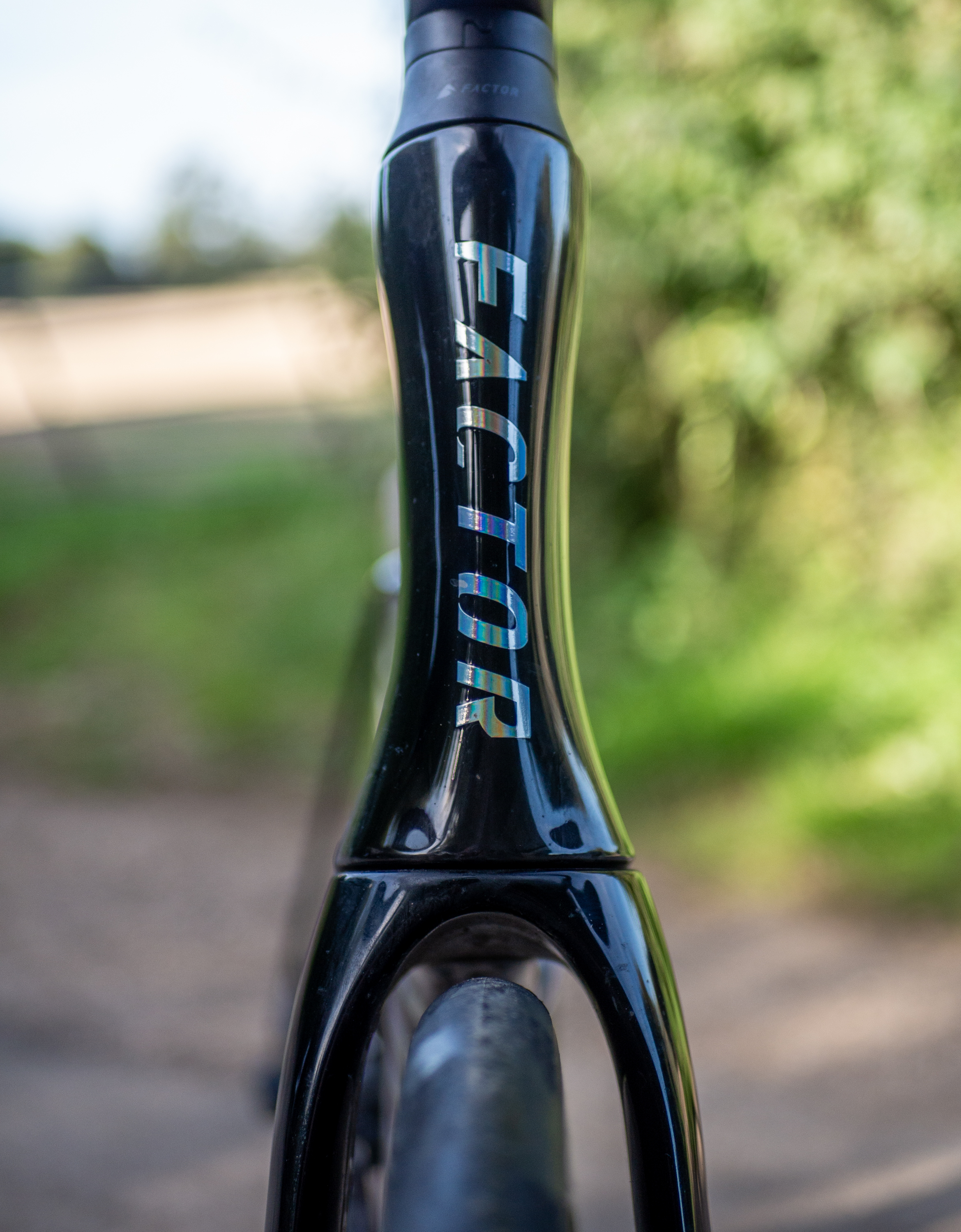
Design and specifications
The OSTRO VAM frame was designed, tested and then, most importantly, manufactured in-house by Factor.
When I interviewed Factor's founder and CEO, Rob Gitelis, back in Spring, he spoke at length about his life in Taiwan. He has long owned a factory there and has spent years building bikes for brands he now calls competitors.
That factory is now dedicated exclusively to the production of Factor bikes, offering the brand a potential edge in the speed at which it can turn out new designs, and the control over how those designes are produced. The brand keeps its product range relatively small too, with just a dozen models spanning road, gravel, XC MTB, and track, all of which are made from carbon fibre and specced at the premium end of the market.
The OSTRO VAM is available in seven sizes: 45, 49, 52, 54, 56, 58 and 61cm.
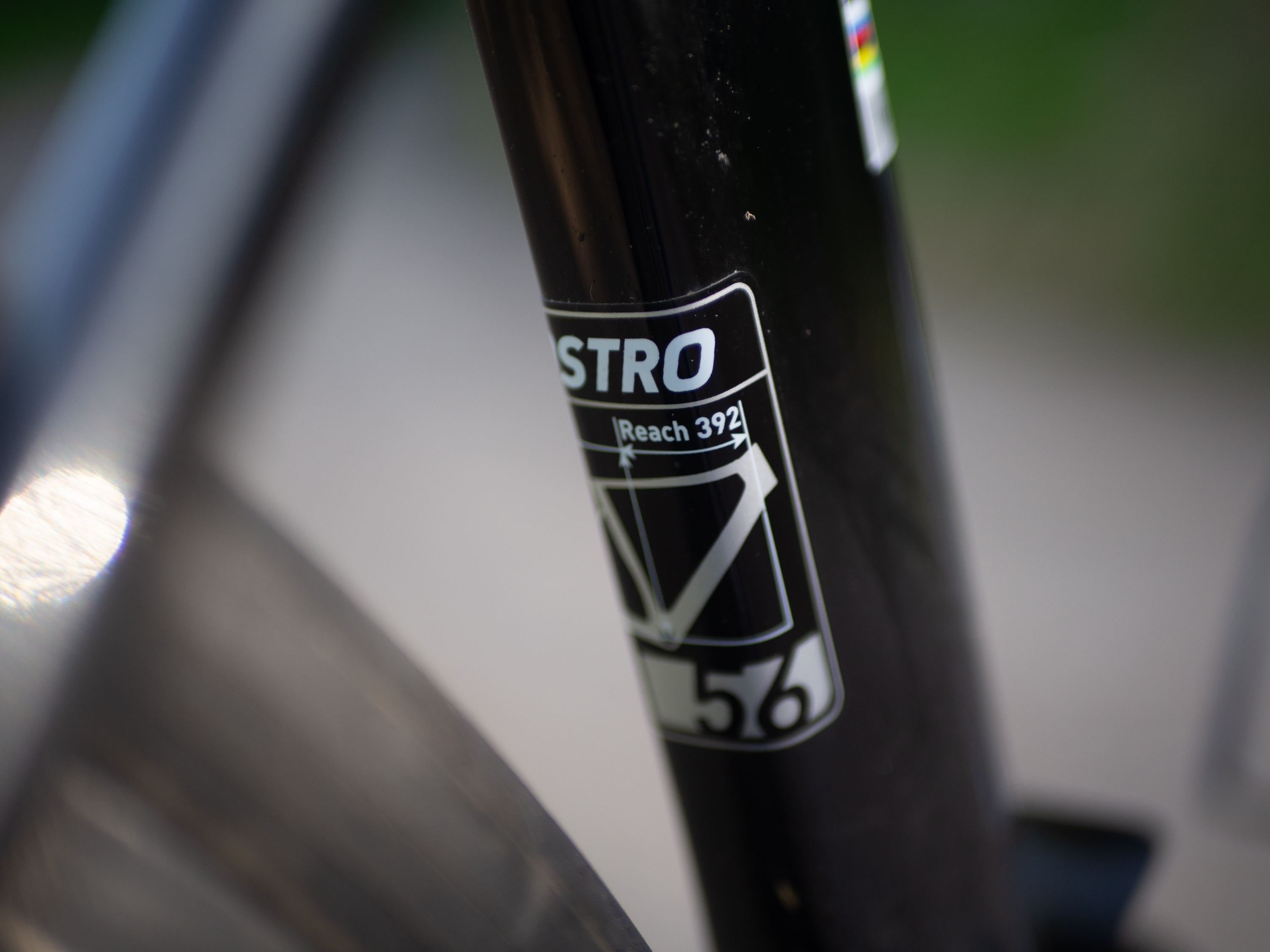
The geometry leaves no doubt as to its intentions as a pure race bike. Our test model came in a 56cm, and in a neat touch, the stack and reach details 565mm and 392mm respectively - are printed onto the seat tube.
Looking at those numbers alone, it's not the most aggressive in its category – the Giant Propel Advanced SL, for example, is 1mm longer and 3mm lower – but overall the OSTRO VAM is fast-handling and race-ready without being uncomfortable or twitchy.
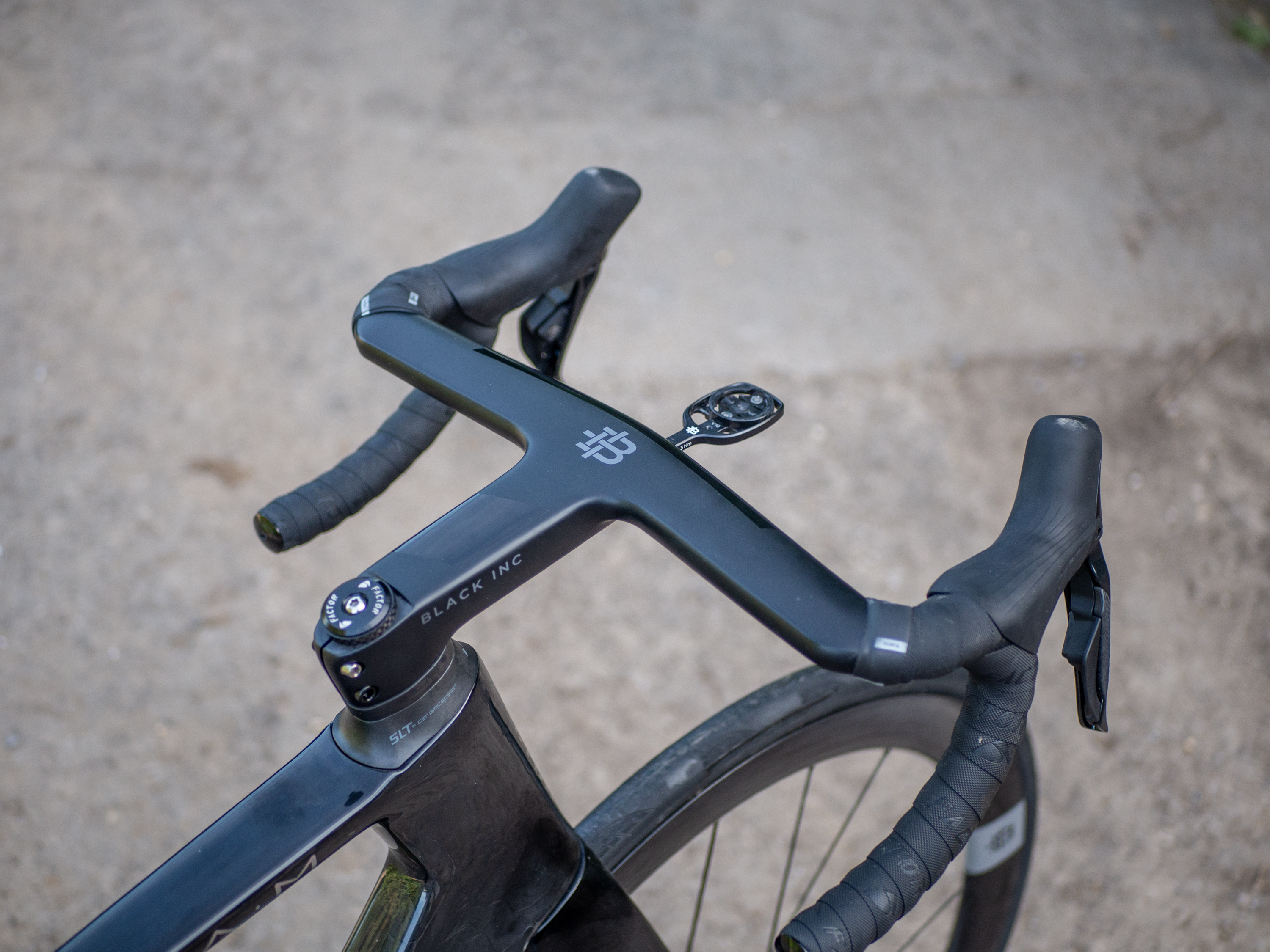
The long, narrow cockpit further exemplifies that feeling on our test bike. If you buy via the Factor website, you can choose from 28 different bar width / stem combinations. This bike comes with 38cm x 130mm, but you can go as narrow as 36cm, or as wide as 42cm, with stems ranging from 80mm to 140mm in length.
The cockpit is one of my favourite things about this bike. In addition to the long and narrow position, it is comfortable in all hand positions and has a small backsweep from the centre outwards. It has a nice matte finish that looks good and keeps the sweaty handprints at bay, and has a good drop depth and shape for a secure but natural hold when descending or sprinting.
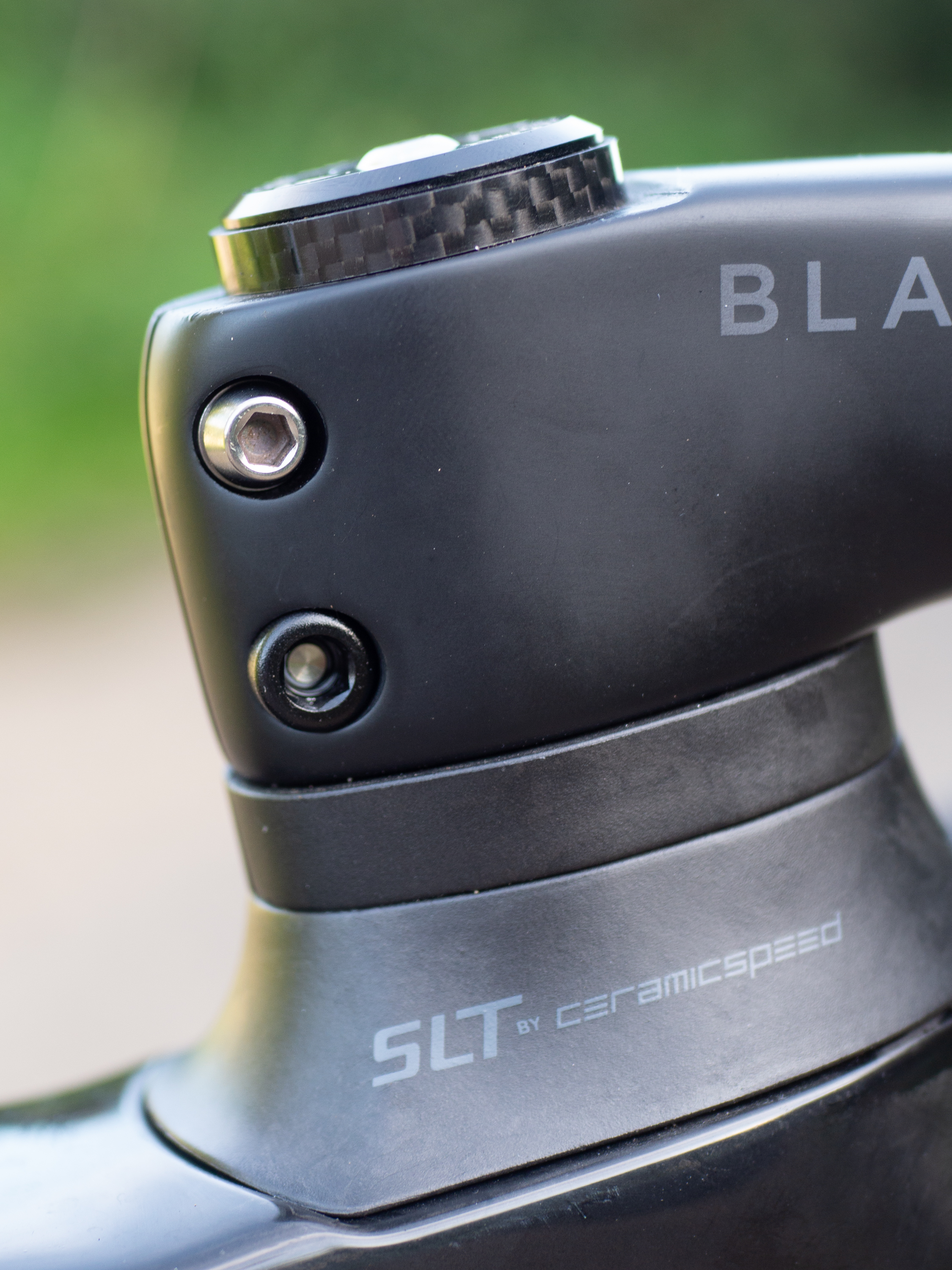
The brake hoses thread inside the cockpit and down in front of the steerer tube inside the frame. The aero-profiled spacers are splittable, meaning you don't need to disconnect your brakes to adjust your position. You will need to do it for a headset service, but the use of CeramicSpeed's SLT (Solid Lubricant Technology) headset means that'll be a very rare need.
The frame follows the recent trend of having deep tubes at the front of the bike with thinner tubes at the rear, aerodynamically optimising the bit that hits the clean air the most while shaving weight where airflow management is less effective.
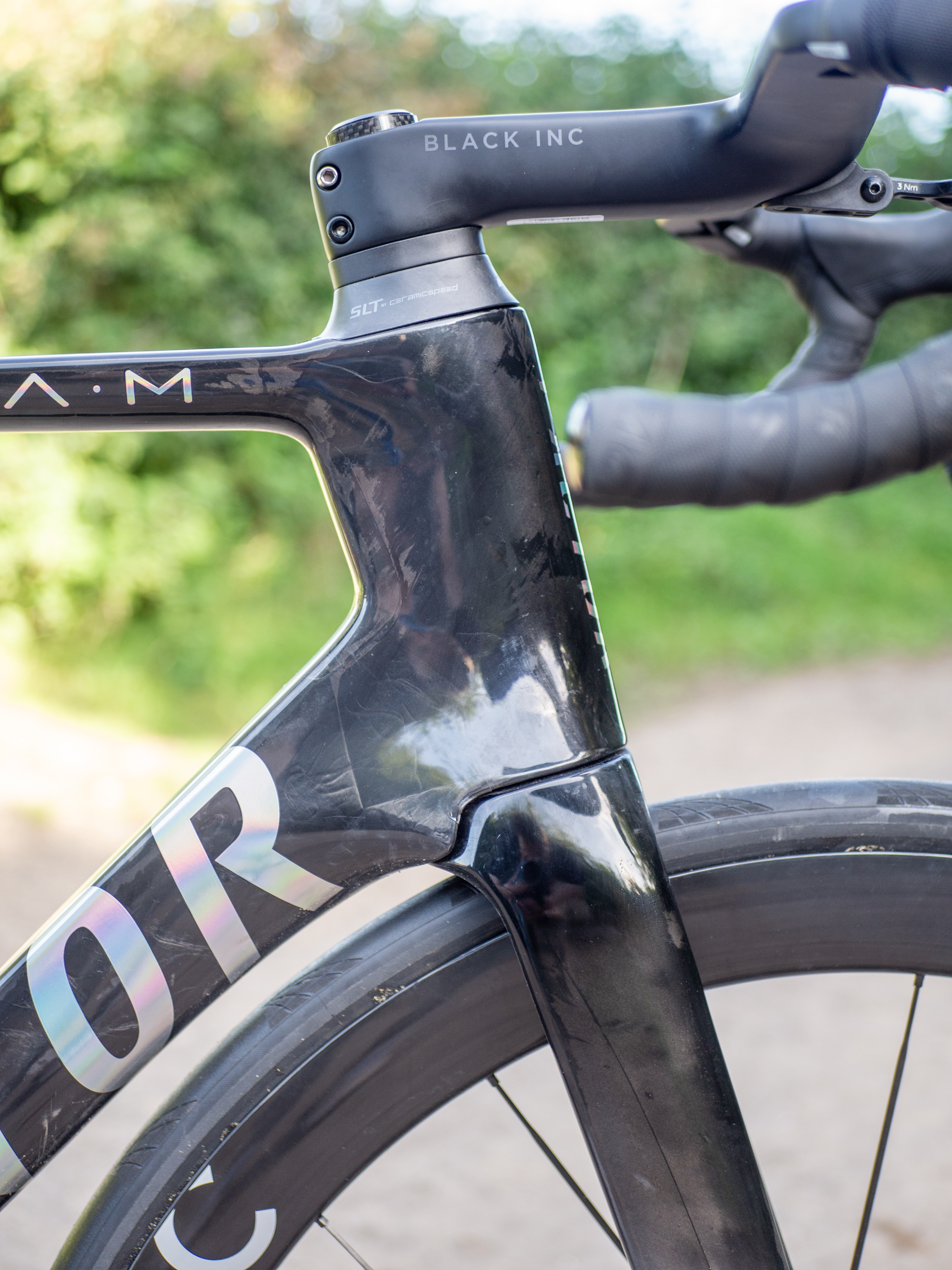
The down tube is chunky and the bottom bracket junction is enormous, but the head tube is incredibly narrow, with an hourglass shape to it, as shown above. Meanwhile, the seatstays are only around a centimetre thick and the seat post isn't as deep as bikes like the Canyon Aeroad or the Cervelo S5.
It looks fast standing still, a theme which is complemented by the black and holographic colour scheme. I think it looks excellent, and the general consensus I've derived from browsing forums and speaking to friends is agreeable.
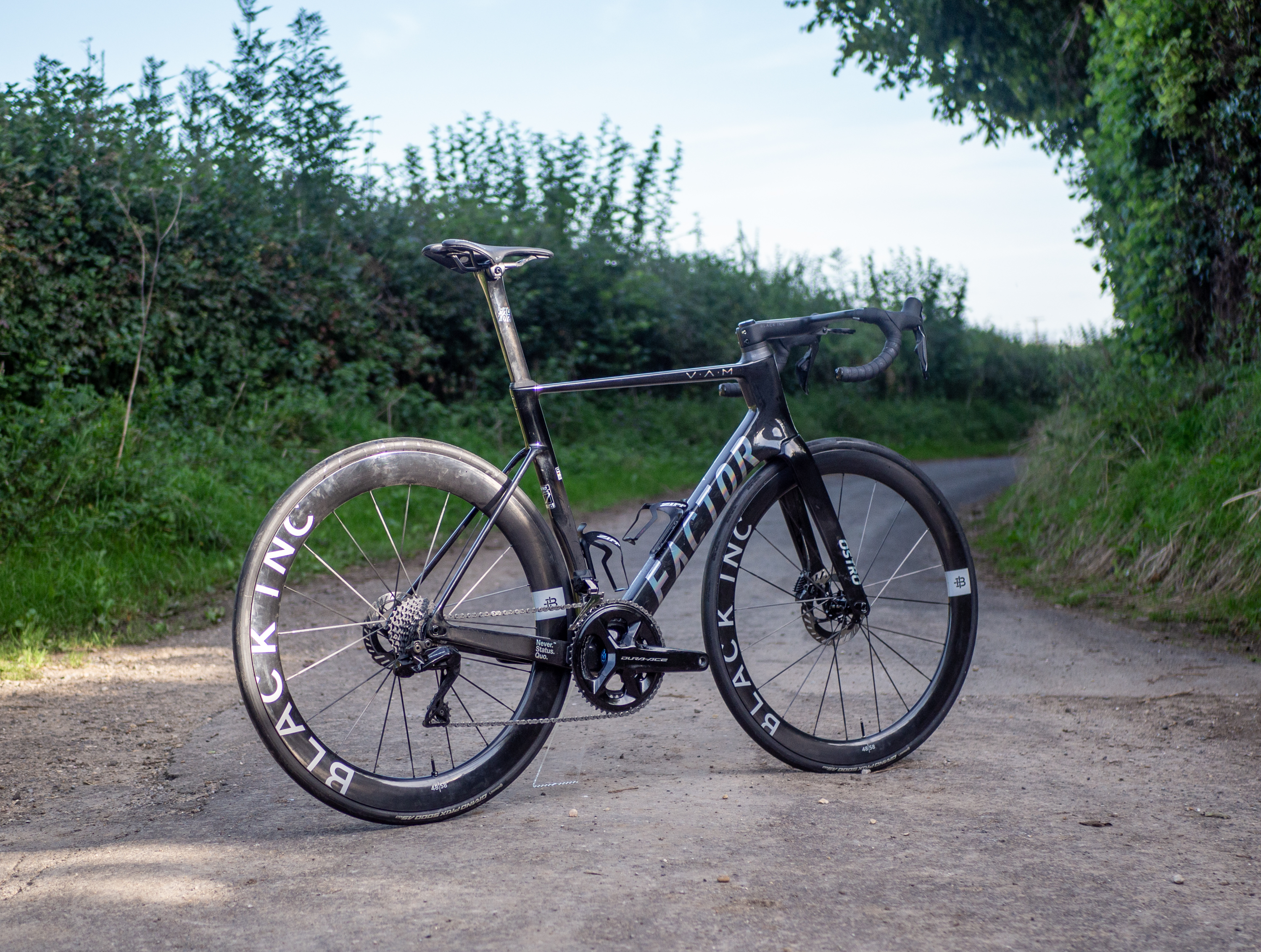
If the colour isn't your style, there are a handful of alternative preset themes, or you can pay extra to fully customise it yourself, choosing from over 60,000 colour combinations. The price of this varies depending on where you are and how you buy it. It's $500 at Factor's own website, for example, but if you're in the UK and buy at the UK distributor Vires Velo, it can be as high as £1200.
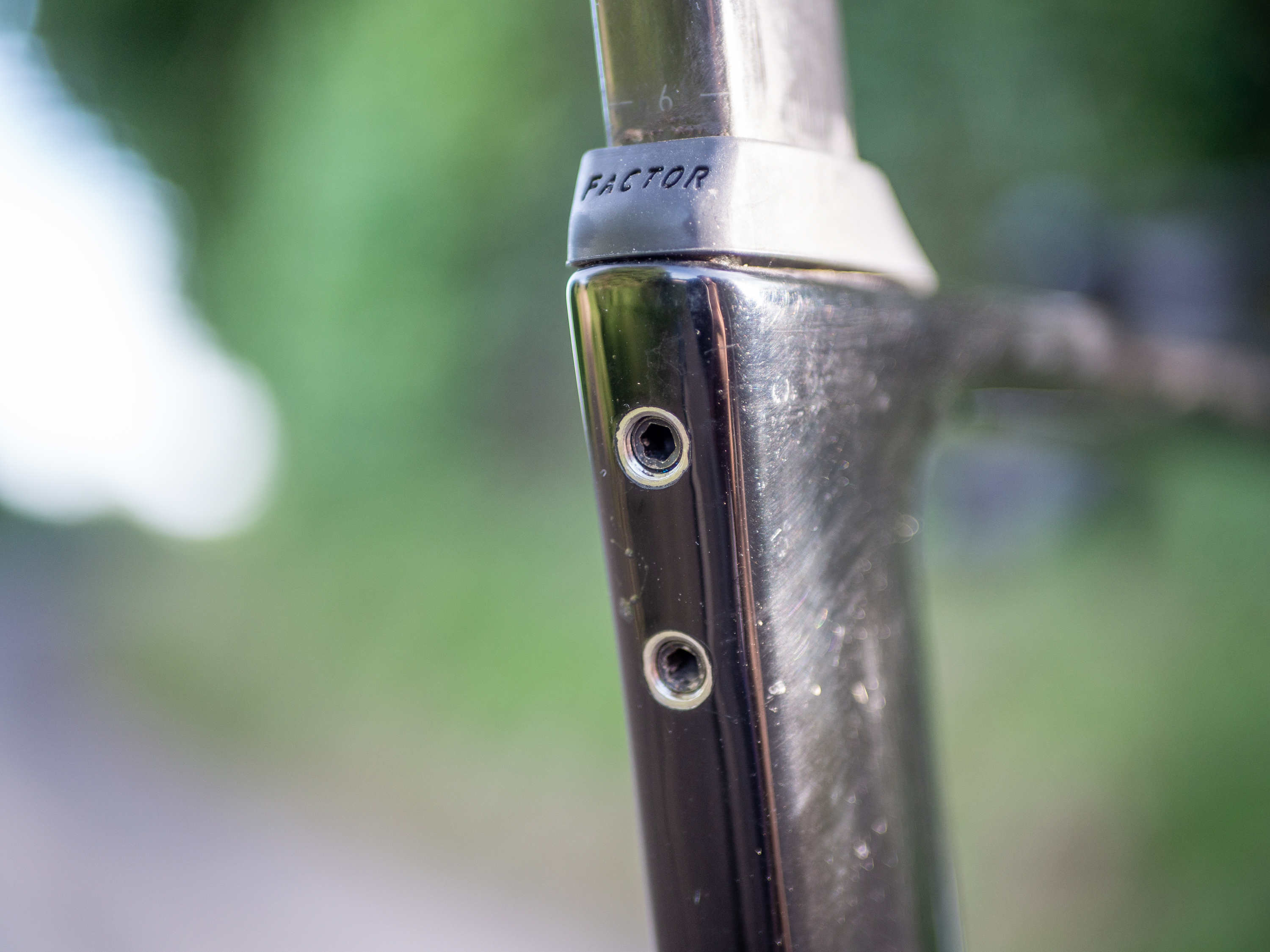
The only visual complaint about the bike I've seen relates to the junction between the seat tube and the seatpost. The wedge that holds the seatpost in place is slotted inside behind the post itself, with two small grub screws used to tighten the expander wedge accessed from behind. The position of this expander means there's a visual step backwards from the seatpost to the seat tube.
Ironically, the Pinarello Dogma F has this step too, much more pronounced in fact, and I've seen no complaints about it, so perhaps this tells us nothing apart from that people are fickle.
Factor claims it managed to shave 70 grams of weight and save seven watts worth of aero drag (albeit the speed at which this was measured is unconfirmed) when compared to the prior iteration of the OSTRO.
The claimed frame weight of 820 grams (a painted size 54cm) isn't actually all that competitive. Specialized's S-Works Tarmac SL8, for example, boasts a weight of 685g for a size 56cm, but Factor weighs a painted frame, which muddies the waters somewhat. Regardless, given the depth of the head tube and the size of the down tube, it's still an impressively low number.
The carbon fibre used on the down tube is so thin that you can flex it with your hand. You probably shouldn't, because you can damage the layers of fibres, but it shows how far the brand has gone to minimise the weight.
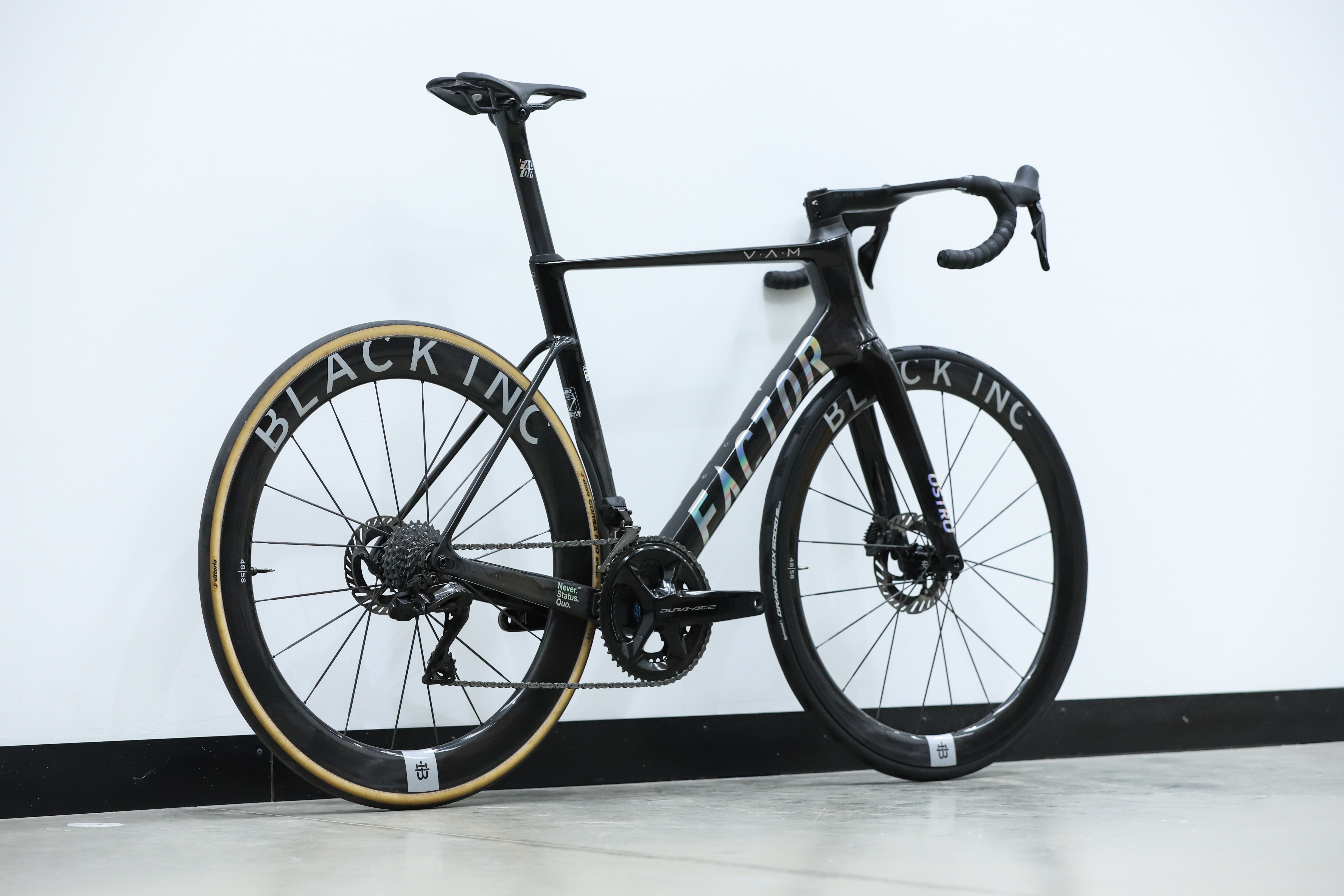
As a full bike, the OSTRO is 7.23kg complete with pedals, bottles and cages in the Dura-Ace spec (no power meter). That's just 50 grams more than the S-Works Tarmac SL8, which weighs 7.18kg. We weren't quite comparing apples to apples, as the Tarmac was fitted with new Red AXS (which I understand is slightly lighter than Dura-Ace) and with a power meter.
Perhaps more comparable is the Pinarello Dogma F, which weighs 7.20kg with Dura-Ace, no power meter, and Princeton Carbonworks wheels.
So it's not the out-and-out lightest 'aero all-rounder' on the market, but it's one of them. The Giant Propel, for example, tips the scales at 7.5kg. The Van Rysel RCR Pro is 7.54kg, and the Cannondale SuperSix Evo Hi Mod is 7.69kg. The all-out aero Cervelo S5 is 8.5kg, albeit with SRAM's second-tier Force groupset rather than Red or Dura-Ace.
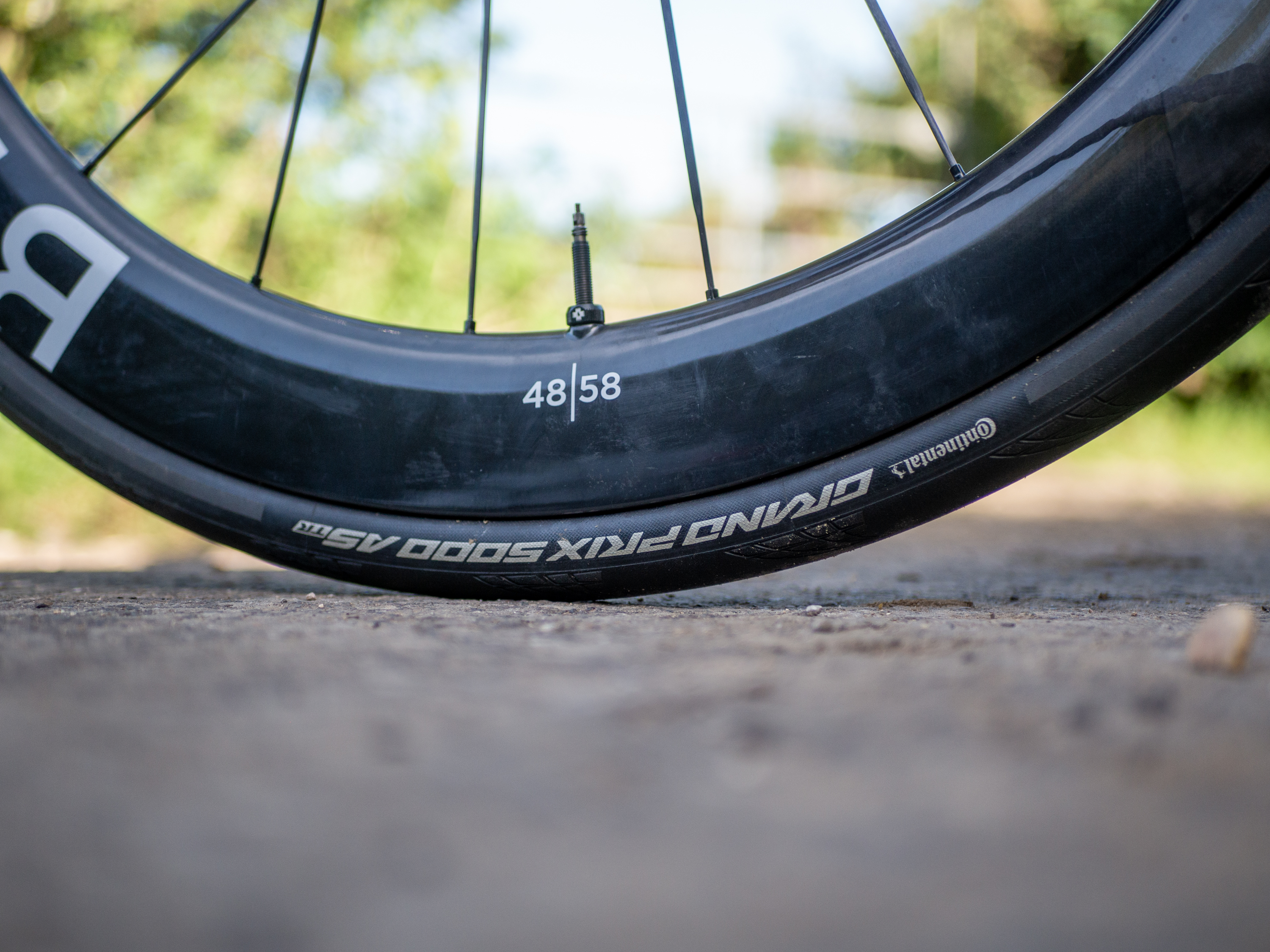
Importantly, much of the low weight of the OSTRO can be attributed to the new Black Inc wheels, which at 48mm deep (front) and 58mm deep (rear), weigh 1296g (tested) for a pair, with a Shimano freehub fitted, but without tubeless valves. That's easily among the lightest of its kind on the market, and it's 209g less than a comparable Roval Rapide CLX II.
They are available to buy separately and retail for £2,960.00 / $2,899.00. They are technically hooked, albeit with a mini-bead hook that's so 'mini' that it's almost nonexistent. They have an internal rim width of 23mm, and spin on CeramicSpeed bearings.
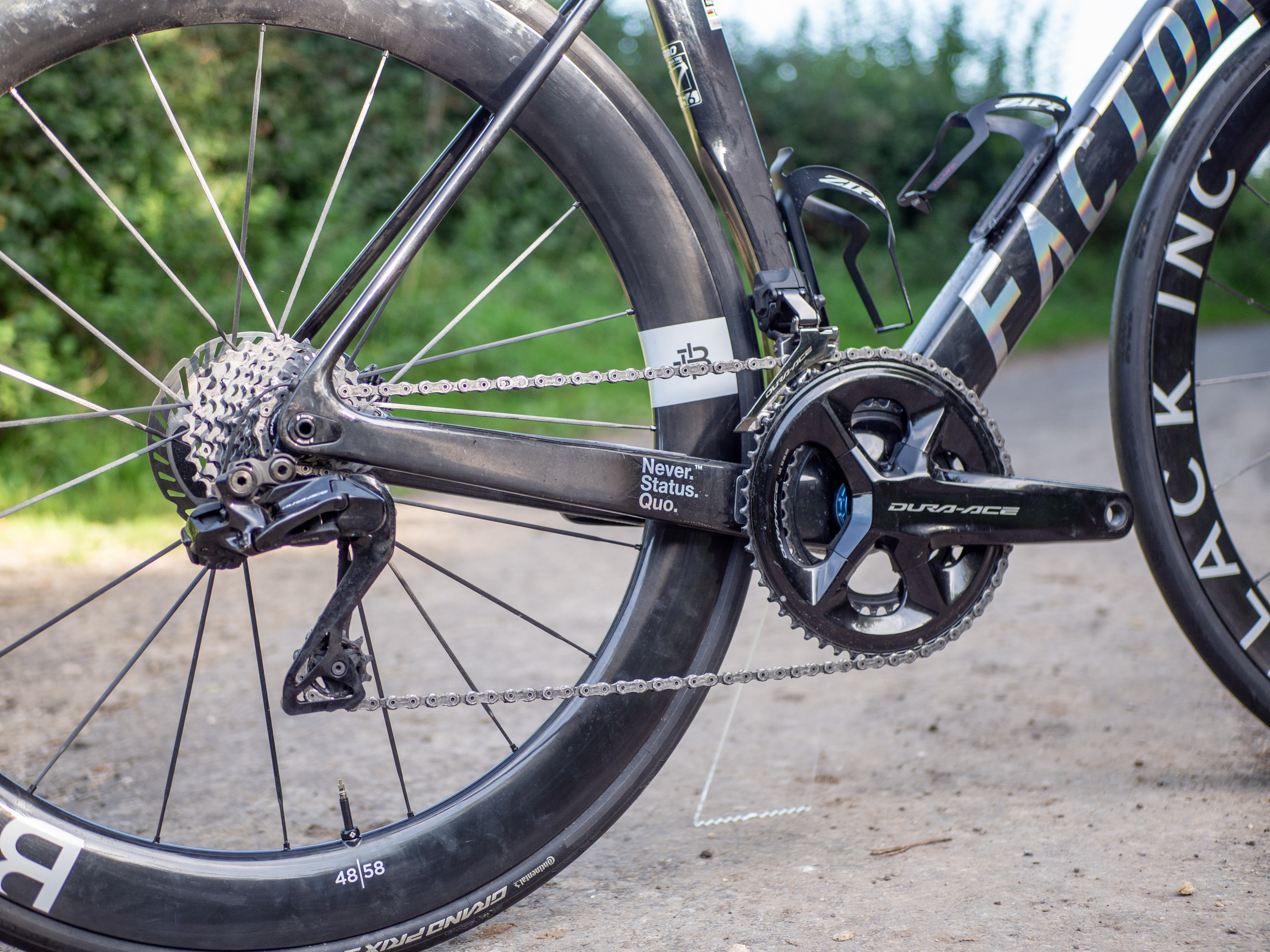
My test bike was equipped with a Shimano Dura-Ace R9200 groupset, and much like the O2 VAM lightweight model I reviewed last year, it doesn't come with a power meter. Many people will find it galling for a bike to cost this much and not come with a power meter, but my argument before – and it stands now – is that if you didn't want one, you'd find it even more frustrating if Factor set the retail price at £500 higher and forced you to have one.
Those who want one fitted from the off will be able to spec one at the point of purchase. This isn't offered on Factor's website, but go via your country's distributor - such as Vires Velo in the UK - and the option is provided. Alternatively, you can buy one separately at a similar additional cost. Our guide to the best power meters has got you covered if you're in that boat.
The bike ships with Goodyear Eagle F1 SS tyres, with tubes, but I've tried the bike with a handful of different tyres to ensure my perceptions weren't being skewed. Again, buying through a dealer provides the customisation to set up with different tyres, with or without tubes as preferred.
Performance
Those perceptions I mention are nothing short of incredibly impressive. The Factor OSTRO VAM is easily among the best all-round race bikes in the world, perhaps even the outright best.
Despite the evident aerodynamic intentions, Factor has done an excellent job of retaining the smooth ride quality I noticed on the O2 VAM, and I could ride comfortably for long distances without feeling like the bike was jarring or stiff. It doesn't have that rigidity that you might come to expect from a typical aero frame, and no matter if riding uphill or down, it felt fast, reactive and purposeful.
Those feelings were then backed up when, in our wind tunnel test, it was pitted against a Look Blade 795 RS, Giant Propel Advanced SL 0, Trek Madone SLR 7 Gen 8, Van Rysel RCR Pro, Specialized S-Works Tarmac SL8, Pinarello Dogma F, Cannondale SuperSix Evo 4, Canyon Aeroad CFR, Cervélo S5 and a Scott Foil RC Pro, and it came out as one of the fastest.
The exact result is somewhat nuanced, and you can read it in full by heading over to our wind tunnel superbike test write-up, but in short, the OSTRO came out very favourably against some of the best bikes in the world.
On top of all that, it is constructed such that each pedal stroke feels direct and effective. There's no feeling of flex or power loss that could undo its aero-meets-lightweight performance in a real-world scenario. Put simply, I can't think of a single thing I'd change.
What's more, while I liked the way the O2 VAM rode, I noticed some build quality issues that wouldn't really be acceptable for a paying customer shelling out upwards of £10,000. I'm told my test model for that bike was a pre-production sample, but the issue stayed with me as a possible reason to disregard Factor against the more established competitors.
However, I'm happy to report that I've not had a single issue with the OSTRO VAM. Not a creak or squeak. It has performed flawlessly over the past six months, despite having been ridden and raced for around 1000km in all manner of rain, shine and everything in between.
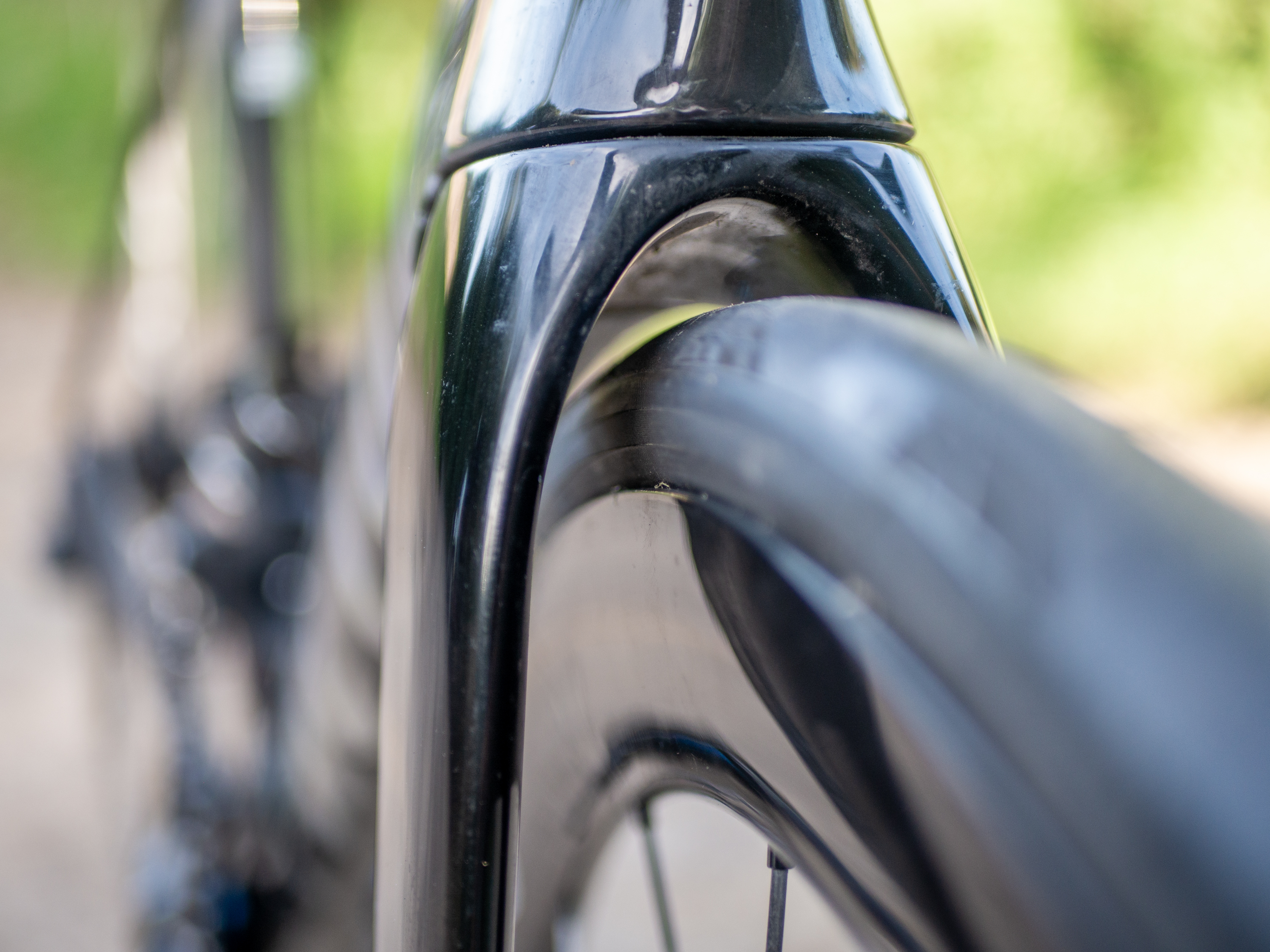
Value
The value section is always the difficult part when reviewing a bike that costs more than a family car, but the price of the OSTRO VAM is exactly where you'd expect when compared to its peers.
There's no denying you can get most of the performance for significantly less, but if you're looking for the very best bike then expect to pay in excess of £10,000 for a complete bike.
Comparing just the frameset for a moment, at £5,449 ($5,499 / €5,799) complete with cockpit, it'll never land in our guide to the best budget road bikes, but the Tarmac SL8 frameset - arguably its closest competitor - is about the same. Well, it's actually around 10% cheaper but without a cockpit, so in reality they're much of a muchness.
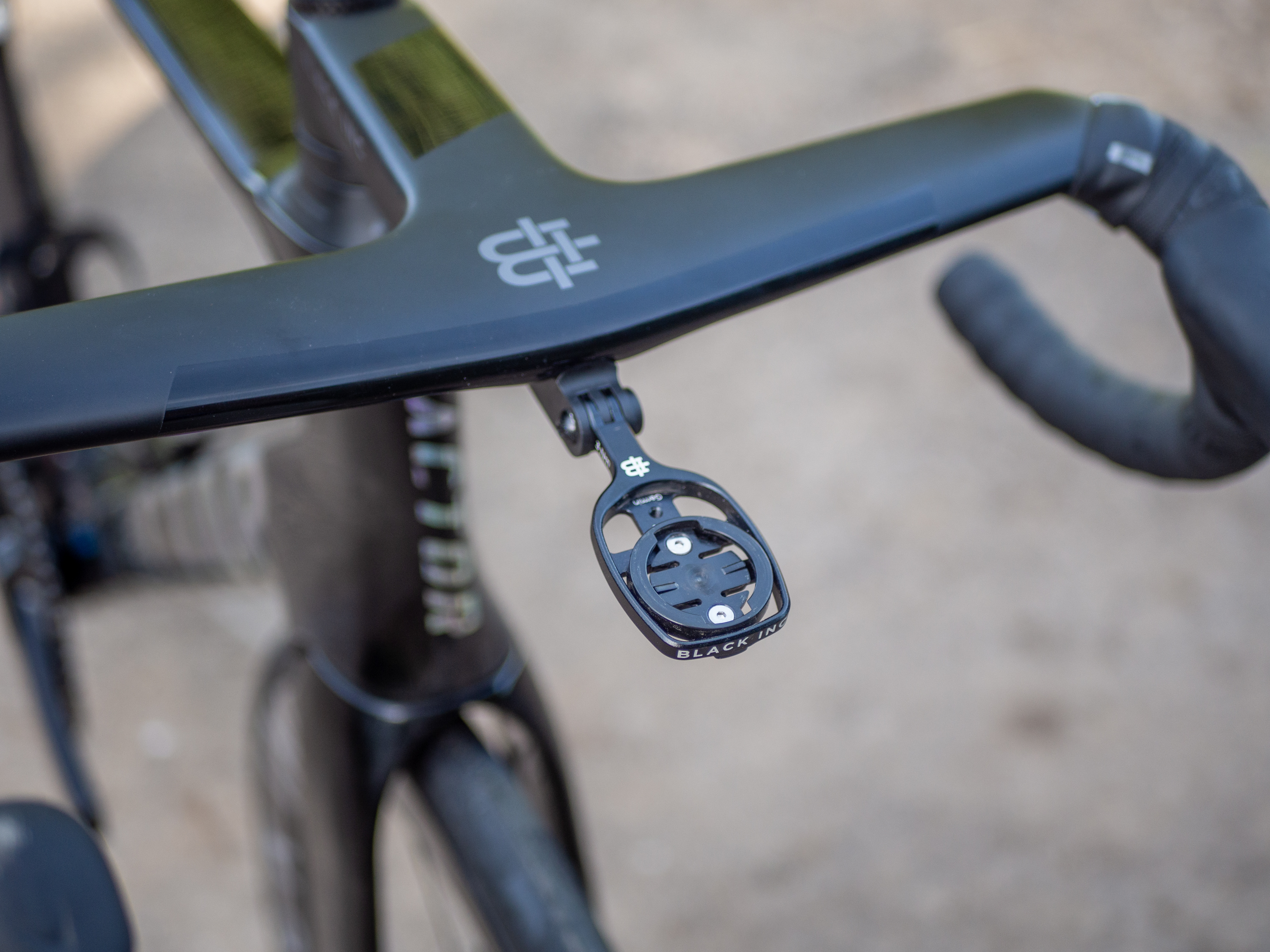
In this particular spec, the price is £11,450 / $11,199, and for that price you get a relatively free rein on customisation.
In fact, Factor really stands apart from some of its competitors by offering the ability to configure and customise your bike as part of the purchase, meaning you can spec the handlebar fit, saddle setback and crank length, as well as colour and some other specs. This saves you having to buy it as it comes and then do what I like to call the eBay shuffle: selling on your unused parts and buying replacements, undoubtedly increasing the overall cost of your bike along with a load of unwanted hassle.
Even though you don't get a power meter on this particular model, when judging the bike's performance and the value of the overall OSTRO VAM range, given the performance on offer, if you're shopping for a bike at this pricepoint then the Factor OSTRO VAM has to be high on your list.
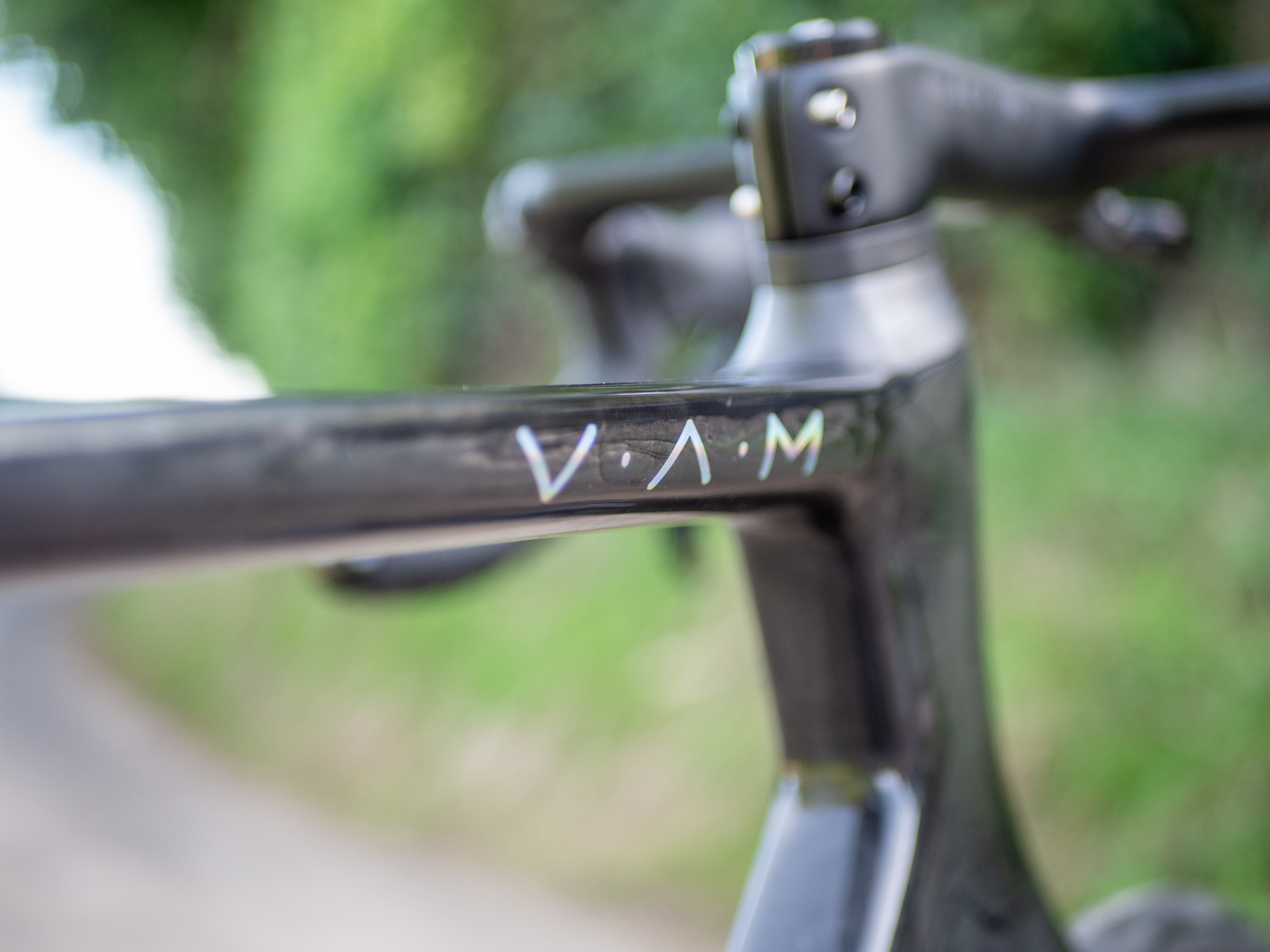
Verdict
The Factor OSTRO VAM is, quite simply, an excellent race bike.
With aerodynamic properties that outperform dedicated aero bikes, a weight that mixes it with the lightest aero all-rounders, and handling characteristics that are direct and purposeful without being twitchy or scary, it's one of the most positive bike reviews I'll ever write.
I've not had a single issue with the bike in over six months of testing in all conditions. Not a squeak or creak from the headset or bottom bracket, no seatpost slips nor thru-axle complications.
And so often a bike of this price is let down by a component that doesn't quite fit the bill, such as a cheap wheelset or a poorly specced handlebar, but that's not the case here. Every component pulls its weight, from the excellent cockpit and lightweight wheels from Black Inc to the CeramicSpeed bearings and Selle Italia carbon saddle. I've not even mentioned the aero bottle cages that are also available - I didn't get them for testing - but they feel like a cherry on the top of a Bake Off winner's cake.
I've said it already, but there's quite simply nothing I'd change. Maybe I'd knock a zero off the price so I could afford to buy one, but that's just (very) wishful thinking.








